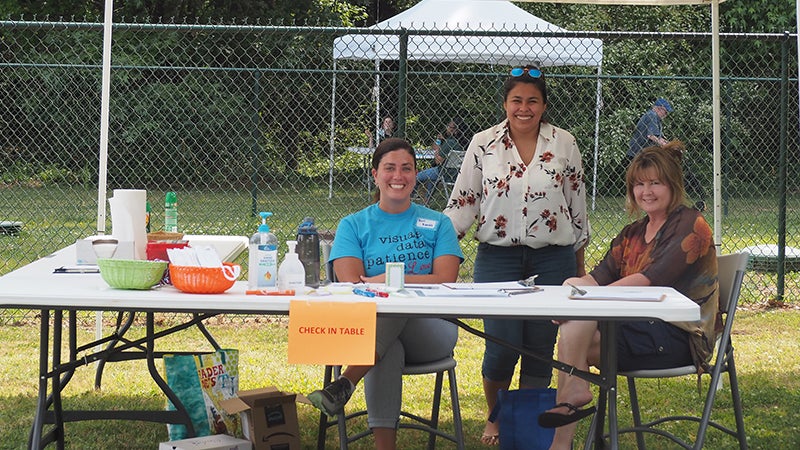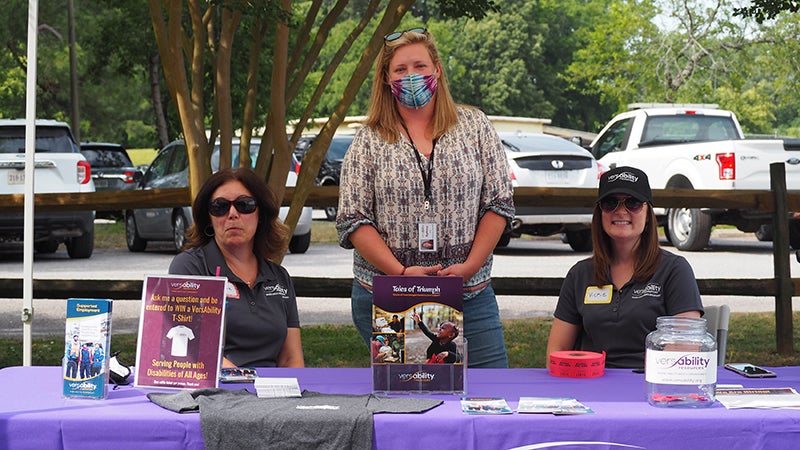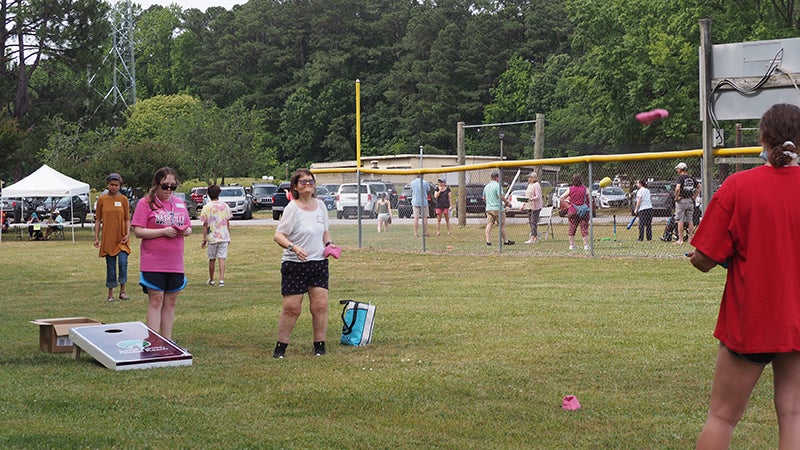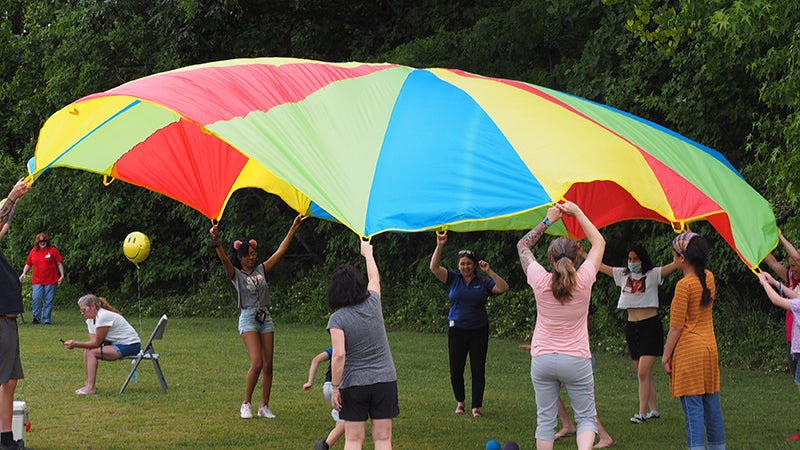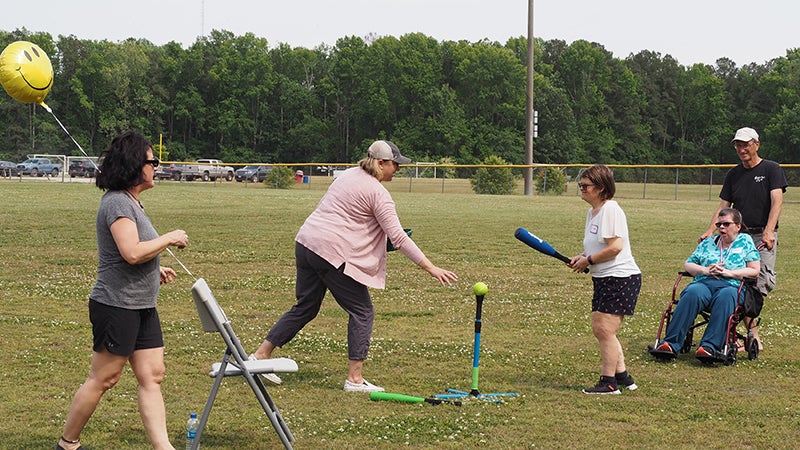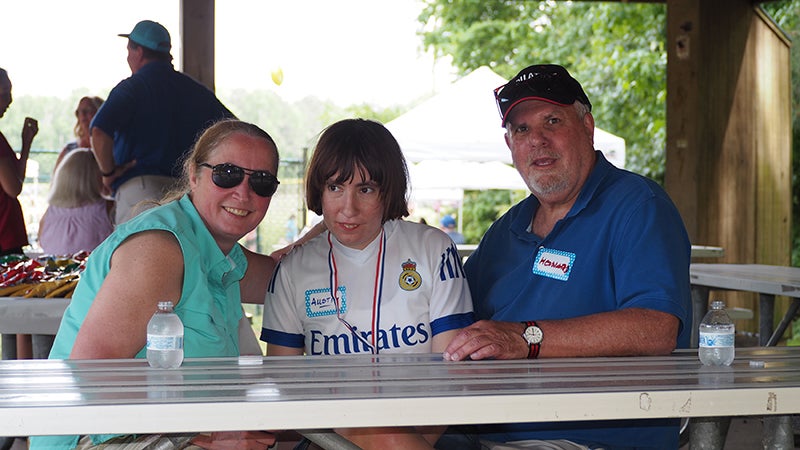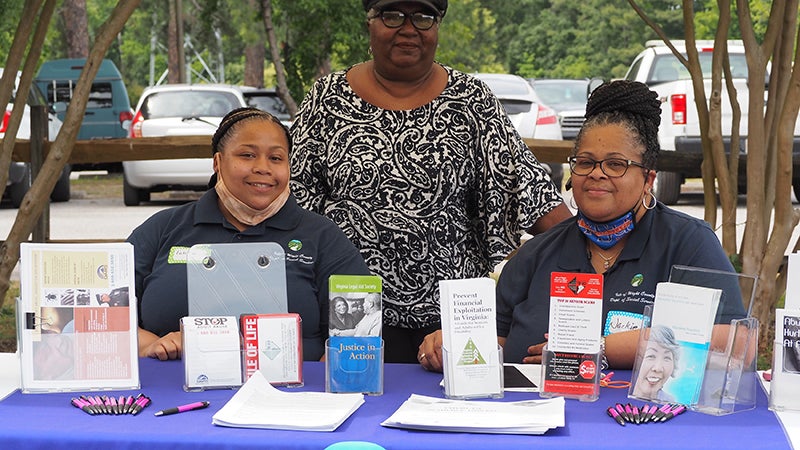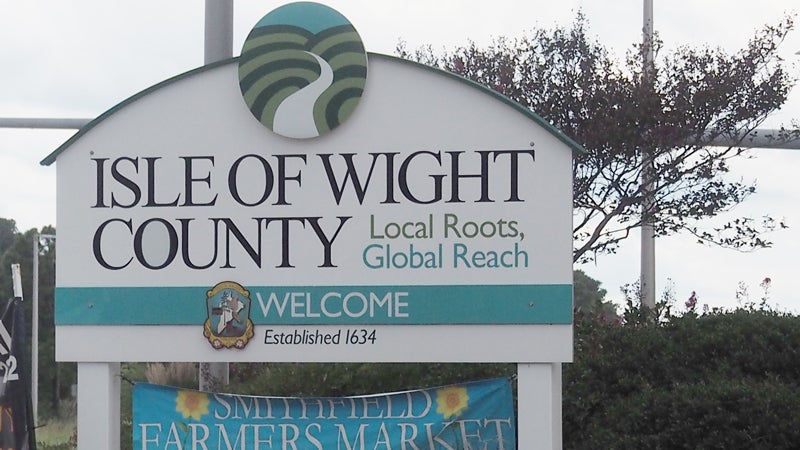‘To be here is to be a winner’
Published 5:44 pm Tuesday, May 25, 2021
Task force on adults with special needs holds field day
Howard Meissel has a personal stake in serving on Isle of Wight County’s task force on adults with special needs.
His 26-year-old daughter, Austin, has autism — a term the American Psychiatric Association defines as a spectrum of persistent challenges in social interaction, speech and nonverbal communication and repetitive behaviors. Some with more mild cases can work and live with little to no support, while others need a lot of help in their daily lives.
Austin falls into the latter category.
“I’m very lucky that I’m retired and have time to spend with her,” Howard said. “My wife is still working so I am sort of the full-time caregiver … Austin doesn’t read herself, and so she can’t really entertain herself other than through movies and television.”
She’s particularly fond of James Bond movies, her father said.
The family lives in Battery Park, an unincorporated riverfront village just outside Smithfield. Her parents have taught her to be responsible for some household tasks, such as setting the table or helping prepare food in the kitchen, but “I’m not sure if she will ever be able to work,” Howard said.
But Austin wasn’t lounging at home watching television Saturday afternoon. Instead, she and her family had gone to Nike Park to participate in a field day the task force had sponsored for adults with special needs throughout the Hampton Roads region.
There, volunteers played cornhole, T-ball and other popular outdoor activities with her and others with special needs — affording their caregivers a few minutes to network with local support providers who had set up tents and were handing out literature on their services. When Austin rejoined her family at a picnic table, she had a medal around her neck.
“Everybody got medals today,” said her mother, India. “To be here is to be a winner … it’s a win for the county that they’re being progressive enough to do something like this.”
Isle of Wight’s Board of Supervisors named Howard to the task force shortly after forming the group in 2019 as a means of creating a plan for how to better serve the special needs segment of the county’s adult population going forward. Under the federal Individuals with Disabilities Education Act, adults ages 18-21 can continue to receive special education and related services through a locality’s public school system, but age out of that option upon turning 22.
At the time he joined, Howard had just retired from teaching at a high school where, inspired by Austin, he’d become involved with his school’s special education classes.
“I knew when I retired that one of the things that I wanted to do was volunteer for a program like this … I realized it had two potential good things for us, the first being it might be a program for Austin to be involved in since she was aging out of school and had very little she could do in our neighborhood, and it would give me an opportunity to work with people with special needs,” Howard said.
Other members of the task force include Kristin Wilda of Trinity United Methodist Church’s Smithfield Hands & Hearts program, which provides social and educational activities for adults with intellectual and other disabilities, and Joel Acree, who represents the Windsor District on the Board of Supervisors.
The field day idea had originated with Wilda about three months ago. She’d been looking for ways to restart the task force after its year-long hiatus due to the COVID-19 pandemic and associated restrictions on public gatherings without exceeding the capacity limits still in place at the time per Gov. Ralph Northam’s executive orders. Prior to May 22, the last time the group had held an event was in March 2020.
Acree also has a personal stake in the group’s success. He has an adult son with special needs.
“Once they age out of our school systems, it seems that they, a lot of times … they fall through the cracks,” Acree said. “I am certain that we have adults with special needs in our community that are older, maybe my age or older, that are living with their senior parent.”
Some just haven’t had the opportunity to get into programs that would allow them to become more independent, Acree said, “services that are actually there, but they’ve just never been connected with them.”
“As a community, we’re missing out that they’re not a part of it,” Acree added. “Some of that’s because of a lack of transportation; some of it’s just the fact that we’ve never reached out as a community and done things that we’re trying to do now with this task force.”


